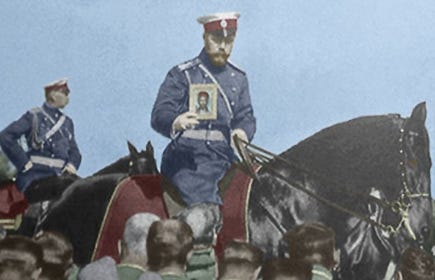Russia vs The World, 1904-Present?
A geopolitical conflict theory
Modern spying was invented during the ‘Great Game’ between Britain and Russia for control of Central Asia in the late 19th Century. Celebrated as the model for Ian Fleming’s famous spy James Bond, Sidney Riley thrived in these margins of conflict. He secretly surveyed Caucasian oil production, led an effort to install a friendly government in 1919 durin…



